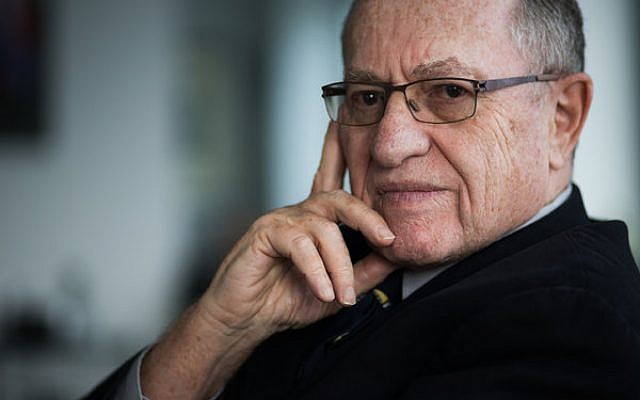The Costs and Benefits of Forgiveness
Alan M. Dershowitz, a renowned lawyer, is a professor of law emeritus at Harvard Law School and author of “The Case Against the Democrats Impeaching Trump.”
We live in a world where forgiveness of evil often comes too easily and at too high a price.
The world forgave the Nazis too quickly by rebuilding Germany with the Marshall Plan. Hitler told the German people that if they kill the Jews, they would be better off economically. They did. They were. They are.
We forgave the Germans because we needed to confront the Soviet Union. Pragmatism prevailed over justice. The result is that “never again” became “again and again and again,” as the perpetrators of genocide got the message of the Marshall plan: If Nazism was so easily forgiven in the interest of pragmatism, every future manifestation of evil will also be forgiven, if the needs of pragmatism require the forgiveness of evil.
Sadat’s barbarism during the Yom Kippur War was forgiven in the name of Camp David. As with the Marshall Plan, it worked. The past was forgiven to help the future. But the price of forgiveness can be high if it discounts justice.
King Hussein has also been forgiven — by history, by the world and by most Israelis — for his barbarism before and during the Six Day War, because he made peace with Israel. Again, the right pragmatic judgment, prioritizing the future over the past. But again, the forgiveness came at the cost of a compromise with justice.
Yasser Arafat was forgiven his terrorism while he was still murdering children and innocent adults. World religious and political leaders welcomed and even honored him in the name of pragmatism. National leaders calculated that if they forgave his terrorism, their countries would not be targeted. They may have been right in the short run, but in the long run their forgiveness only incentivized terrorism as a tolerated tactic.
Forgiveness has an important role to play both on the international and personal stage. But it must always be balanced against the need for justice. The Bible commands “justice, justice shall you pursue.” Why is the word justice repeated? Commentators respond that the justice of the past should be balanced against the justice of the future. That is as true of personal as of political forgiveness. Victims of repeated abuse too often forgive their serial abusers, thereby encouraging even further abuse. We must have zero tolerance for abuse of every kind.
If forgiveness for evil is to occur justly, it must be preceded by an acknowledgement from the perpetrator that he or she has committed evil. Forgiveness is too often given routinely without any such acknowledgement. I have mixed feelings about the Rosh Hashanah tradition in many congregations of simply turning to friends, neighbors and family members and offering a hollow forgiveness. To be worthy of being part of a system of justice, forgiveness must be a process, not a singular annual act.
So on this Rosh Hashanah, think before you forgive. Make forgiveness a meaningful aspect of justice, rather than an empty gesture or ritual. The person asking forgiveness must deserve forgiveness.
Don’t cheapen the important concept of forgiveness by routinizing it. Not every sinner deserves forgiveness. Reserve the valuable currency of forgiveness for those who most deserve it.




comments